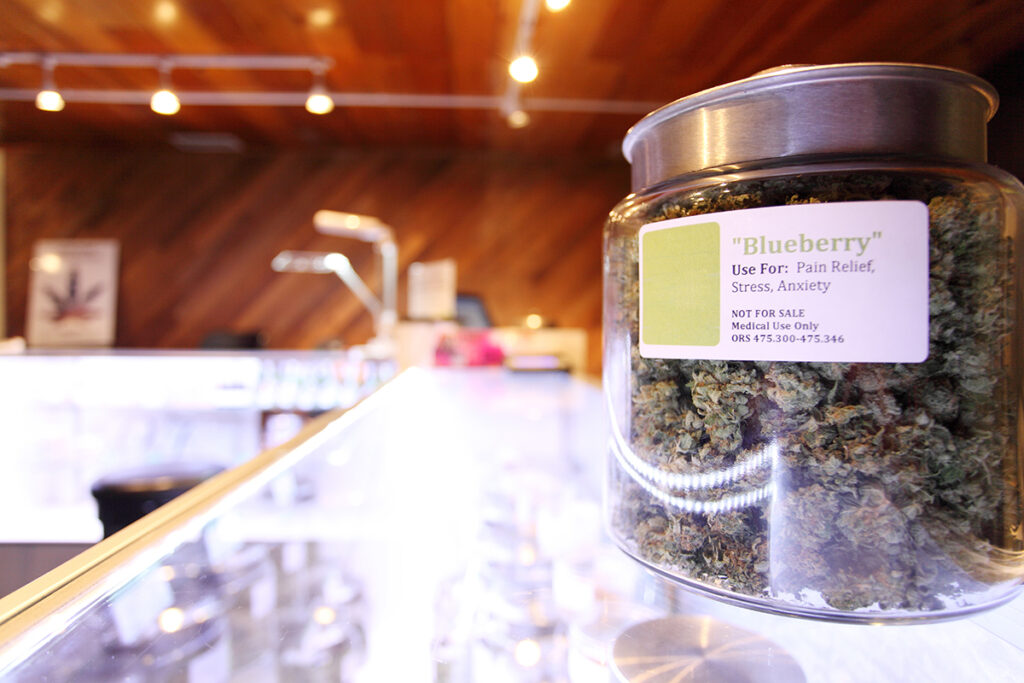Before the pandemic came along and upended everyone’s lives, cannabis use by adults with depression had already been on an upward trend. From 2002 to 2017, cannabis use rose nearly 100% among adults, with daily use going up 40%. During that same time, perceived risks of cannabis were steadily falling, supply was increasing and several state laws became more permissive. Keep in mind that all of this is pre-COVID.
As the time table ticked down to the pandemic, 34 states wound up allowing medical marijuana use while 11 states said yes to recreational use. Some applauded these measures as the result of decades of trying to shift the paradigm to end cannabis prohibition. Others paid attention to increased cannabis use by adults with depression with some concern. What are the implications, especially with the development of a socially distanced society?
Increasing cannabis use by these adults should make behavioral healthcare professionals take notice. US adults with depression are twice as likely to use cannabis. The problem is that we’re not talking about occasional use. Instead, we’re talking about daily or almost-daily use of cannabis. It’s not really treating depression. It’s simply a prevalent trait of adults using cannabis, and in many respects is not different than abusing other substances to cope with depression.
There are many voices out there spreading the good word about cannabis. That’s not surprising, considering the number of people who have realized that cannabis is on its way to becoming a gigantic legitimate industry. Positive talk about cannabis serves the purposes of a burgeoning industry that can smell the money to be made. It also paves the way for some people with depression to more actively self-medicate with cannabis.
Cannabis Use by Adults With Depression Isn’t Going To Decline Anytime Soon
One glance at various media sources will reveal a plethora of misleading information about cannabis and its effects on mood disorders. Whether it’s mainstream news outlets, social media or marijuana industry press releases, there’s plenty of misleading or totally false information about the health effects of cannabis use.
Of course, one of the most prevalent cannabis health claims involves depression treatment. Paired with the media’s increasingly positive messaging about marijuana, the public is seeing cannabis use by adults with depression as relatively harmless.
“This situation makes the lives of our clients that much more difficult,” says Dan Gemp, CEO of Dreamscape Marketing. “We work closely with hundreds of detox and drug rehab centers, and I can tell you that they don’t appreciate efforts to make recreational drug use look harmless and absent of any possible consequences. Then, of course, along comes the pandemic. That was like throwing gasoline on a fire.”
Adult Cannabis Use in the Pandemic Was Inevitable
Take an already volatile situation and mix in social distancing and quarantines. The result is something probably most people in the behavioral healthcare field could have easily predicted.
The reality of being isolated at home during the coronavirus pandemic can’t be ignored. Any existing depression has only been fueled by the circumstances of quarantining. So, as adults battle with the reality of isolation, they heard media messaging that cannabis could be their new best friend for depression. It’s therefore no surprise to see cannabis use by adults in the pandemic exploding.
Drug and alcohol addiction rates are rising during the pandemic. The reasons couldn’t be more obvious. Recently unemployed workers face an uncertain future and experience depression. Remote workers are under little supervision while at home working, which can lead to irresponsible drug and alcohol use. It would be hard to create a more perfect situation for increasing various types of addiction, including increased cannabis use by adults with depression.
As ever, it’s the responsibility of behavioral healthcare centers across the country to deal with the consequences of the pandemic. Dual diagnosis treatment, for example, is likely to have more participants than ever. And, of course, the end of COVID doesn’t signal the end of the problem. Addiction treatment centers are going to be feeling the effects of more dual diagnosis patients for years to come. Maybe many more years.
Combating The Problem of Adult Cannabis Use
Just as with alcohol and other substances, there are those who will be able to moderate their intake and use substances responsibly. But it’s important that addiction treatment marketing professionals keep in mind that with increased use comes increased risk of addiction, and a flood of people eventually seeking to get clean and sober. Dreamscape Marketing has been offering web design, content marketing, SEO, and PPC campaigns for addiction treatment centers for over 15 years. Give us a call today at 888.307.7304 to learn about how you can increase your web presence to help more people as the pandemic beings to wane.







